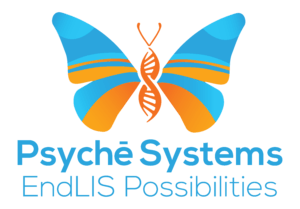New tech innovations arrive every day, and nowhere is that fact more evident than in the medical laboratory. Laboratory information software has a lot to keep up with these days. The latest technological advances haven’t just sped up our testing methods; they’ve changed the way we practice medicine as a whole. For laboratories that may need new software, one of the most important factors to consider is how well the new software can keep up with new technology. Here are just some of the tech factors that have changed the laboratory landscape.
Laboratory Information Software and Machine Learning Technology
If you look up laboratory information software in the news, you’ll probably see several recent stories about AI and machine learning. These technologies have transformed many industries, and now they’re making some big changes in laboratory instrumentation. With machine learning, the testing process and data retrieval can become much faster, and patients can get a clearer picture of what their results mean for them.
For laboratory software, these new technologies demand solid instrumentation integration. Software updates must include considerations for machine learning, and integration must happen simply and seamlessly so that laboratories can adjust to any machine learning upgrades they choose to implement.
Increasingly Electronic Workflows
Laboratories use a variety of workflows, but these days, those workflows are becoming more and more electronic. Labs are phasing out manual workflow options in favor of digital ones. It’s easy to see why. Digital workflows leave less room for human error, lowering the chances of misdiagnoses and other potentially devastating problems. Electronic workflows are increasingly becoming the norm with laboratory information software systems, and that pattern won’t likely change. Soon enough, non-electronic workflows will eventually fall by the wayside.
Electronic workflow conversion has a lot of benefits, both for laboratories and for patients. However, laboratories that do switch to an electronic workflow system will need a laboratory information system that can handle the conversion easily. A LIS that supports electronic workflows is a LIS that supports accuracy and efficiency.
Electronic Medical Record Challenges
While laboratories switch over to electronic workflows, medical centers are switching to electronic medical records. Overall, this change is a great thing, for all the same reasons that electronic workflows are a positive thing.
But just like with electronic workflows, while electronic medical records are becoming the norm, the transition will take some time. Some medical centers have fully converted to an EMR system. Others are still relying on paper. Still others are in the middle of the conversion process, using a mixture of physical records and EMRs until they convert their last record. It all depends on the medical center’s location, money, patients, and resources.
In any case, today’s labs need laboratory information software that works with electronic medical records. Ultimately, this conversion will mean more convenience, both for the medical centers that send the records and the laboratories that receive them. However, until that full conversion happens, laboratories will also need flexibility in their communication options. They should be fully capable of document and information exchange with medical centers, whether those medical centers use EMRs or manual record storage.
New Automation Options
The latest news is also full of automation updates, including information on the Internet of Things. Automation could change the way that laboratories run and process their tests, but it will most certainly change the way laboratories send and receive data. These days, laboratories receive data in a variety of ways, not all of which are automated. Soon enough, however, automated retrieval may become the new norm, and those who own and run laboratories should make sure that their labs have the right resources to adapt to the change. Again, this comes from having the right laboratory information software. As laboratories adapt to automation, lab techs can look forward to more efficient work and faster results.
However, just like with other new technologies, laboratory information software should come with plenty of flexibility in the meantime. It should handle multiple forms of data retrieval, both automated and non-automated.
Wearable Tech and Precision Medicine
Speaking of receiving data, more laboratories could soon be poised to receive data from wearable medical technology. Precision medicine has become a major topic in the medical community. We’re seeing how different treatment options work for different races, nationalities, and age groups. Instead of applying a one-size-fits-all approach that really only benefits a few demographics, we’re using more precise medical care.
As medical care gets more precise, so does medical technology. For example, we now have more wearable medical technology, and the tech that we already had is getting more advanced. Laboratory information software developers may need to start expanding their software’s capabilities to receive more data from these devices and deliver results based on that data.
Adapting Old Technology to New Resources
Even as new technology emerges, laboratories aren’t abandoning their older tech. Instead, they’re applying new uses and resources to the technology that has served them well for decades. An example we gave recently comes from RT-PCR testing for COVID-19. RT-PCR has existed for years, but COVID-19 didn’t exist in humans until very recently. When medical laboratories needed a fast resource for new laboratory tests, they adapted the technology that they already had, and they used their laboratory software to make those adaptations.
New Technology Calls for Flexible Laboratory Information Software
The running theme in all of this is flexibility. Laboratory technology will always grow and evolve, and that’s a great thing for healthcare and human quality of life. In light of all of these adaptations, laboratory information software should stay nimble and flexible.
That’s exactly the kind of software we’ve created at Psychē Systems. Adaptability and flexibility are two of the cornerstones of our software, along with user-friendliness and providing options for startup labs.
Psychē Systems offers laboratory software for all types of clinical labs, and our software options are customizable. Whatever type of LIS you need, you can start customizing it right now. Not only can you adapt your software to your current needs, but you can also rest assured that our updates are ready for whatever comes next.


